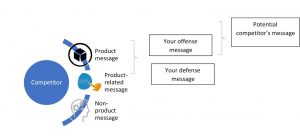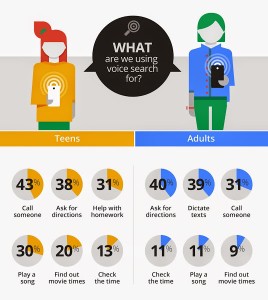— January 28, 2019
In Part 1 last week, I covered the essential beliefs that you must have to create a culture of learning in your team. Part 2 will cover specific actions you can take that will create learning opportunities for each individual in your team, thus visibly stimulating a culture of continuous learning and growth.
Each of your team members will define “learning opportunities” differently. For some, it will mean formal training and certifications, for others, promotions, increased responsibility or diversity of on-the-job experience. Great managers focus on the unique development needs and wants of all individuals in their team, picking learning experiences that will benefit the individuals, their team and the organization most.
Following are 8 interventions you can implement to spark a culture of learning in your team:
1. Personal Development Plans
Sit with each of your team members and write out their areas of strength and areas of improvement, in terms of both skills and personal growth (behaviors or mindset). Make sure you celebrate their strengths with them first. Then Identify and mutually agree on the top 2-3 areas to focus improvement efforts on. Make a Personal Development Plan with SMART goals to accomplish this improvement in a given time frame. Follow up with your team members to hold them accountable for these development goals at the end of the decided period.
2. Teaching
Besides clearly communicating your intent and ability to foster a culture of learning, teaching others is also the best way to keep learning yourself. Regularly share your knowledge, skills and experiences with your team members. Also create opportunities for team members to share theirs with one another.
You can do this by scheduling regular learning sessions (30 minutes-1 hour a week is more than enough) where you or your team members teach something relevant that they are good at. This is also a powerful way to recognize the person teaching the session, since it publicly acknowledges and celebrates something they excel in. You may also organize a schedule of external and internal guest speakers who can teach your team about other parts of the organization or other skills/knowledge/inspiration that will benefit them.
3. Learning Accountability and Rewards
Make learning and development targets a part of your team members’ annual performance goals, and hold them accountable for meeting these during the performance review process. You can also create different rewards or incentives for team members that encourage learning by recognizing individuals who excel as learners (e.g. Learner of the Quarter Award) or have the right mindset and behaviors around learning and growth (e.g. Growth Mindset Champion).
4. Knowledge Provider
Regularly distribute any useful articles, books, videos, reports or other learning material you have read or come across to your team members. A mix of material on professional and personal development will encourage learning most. Ask team members about their interpretation of the material you assign and tell them why you find it useful, inspiring or interesting. What were key lessons they learnt from the material?
5. My Learning
Write an email to your team about any area(s) of your professional life where you once had low ability, but now perform well in. Explain how you were able to learn and grow to make the change. Share any challenges or failures you faced in the process, and what you learnt from them. Use your example to inspire and encourage your team members to learn and improve in areas that are important for their job effectiveness and longer term career growth. Doing this is also a great way to emphasize The Growth Mindset (covered in part 1). In fact, it is an exercise that Dr. Carol Dweck particularly assigns to managers to help them develop and communicate a Growth Mindset to their teams.
6. Stretch Learning Assignments
Give your team members work assignments that will stretch their boundaries and challenge them to learn relevant new skills and behaviors, and improve in areas where they need to develop. It is important to explicitly tell them this when you are assigning them that challenging project that will expand their horizons. You may also want to define SMART learning goals (e.g. develop expert level skills in using MS Excel for data analysis) for the stretch assignment or any other learning opportunity, and then follow up on these with team members to ensure they have accomplished these targets.
7. Learning Wants and Needs Analysis
Ask team members, individually and collectively, what they want to learn that will also help their career goals and aspirations. Also ask them what you can do to further improve the learning opportunities they get to develop themselves. Tell them that their feedback will help you and they together create a more relevant learning experience that benefits them, the team and the organization. Also assess what they need to learn to deliver excellence in their roles from the perspective of team and organizational goals. Give highest priority to the most needed abilities that your team members also want to learn most. You may rank order different learning opportunities by assessing where they stand on this Need-Want matrix. Follow up on this information gathering exercise by referring or assigning team members to training and work experiences that will encourage the learning that they need and want.
8. Learning Opportunities Review
From the courses offered by your company, select the ones that will make a significant impact on the future and current performance of your team members. Also ask your team members to identify external training, events, seminars, conferences and workshops they would like to attend. Recommend (or prescribe) useful learning opportunities that you come across to your team members.
This above is by no means an exhaustive list of things to do. I would love to hear your ideas about any other effective interventions that create learning opportunities and encourage a culture of learning in teams.
Here’s to a Happy New Year of learning!
Business & Finance Articles on Business 2 Community
(126)






